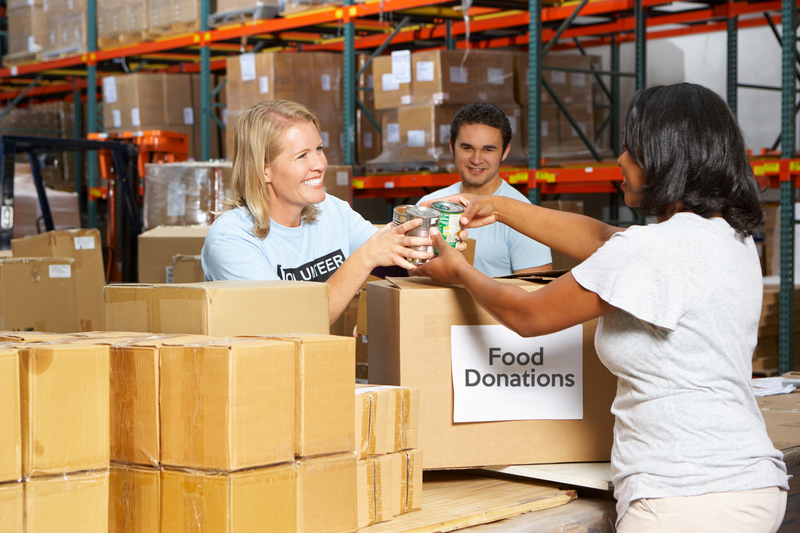Home Trash Collection
Posted on 27/09/2025
The Importance of Efficient Home Trash Collection
Understanding the necessity of effective home trash collection cannot be overstated. In an era where environmental sustainability is paramount, managing waste efficiently at the household level plays a significant role. Poor waste management can lead to various environmental hazards, including pollution, health risks, and a reduction in the overall quality of life. This article delves into the specifics of home trash collection, offering insights into its importance, the best practices to follow, and tips for making the process more efficient.

Segregating Waste at Home: A Crucial Step
One of the foundational steps toward efficient home trash collection is segregating waste. Proper segregation involves categorizing waste into different types, such as organic, recyclable, and hazardous materials. Organic waste includes kitchen leftovers and garden waste, while recyclable waste comprises items like paper, plastic, and glass. Hazardous waste consists of materials like batteries, electronics, and chemicals. By segregating waste correctly, households can contribute to more effective recycling and disposal, ultimately reducing the environmental footprint.
Scheduled Trash Collection Services
Scheduled trash collection services are an integral part of maintaining a clean and healthy environment. Municipalities typically provide curbside collection services, wherein trash is collected on predetermined days. Knowing the schedule and adhering to it ensures that waste is disposed of regularly, preventing any accumulation that can attract pests or lead to unpleasant odors. Additionally, understanding the regulations and guidelines set by local authorities for trash disposal can help in avoiding penalties and maintaining compliance.
Choosing the Right Trash Bins
Selecting the right trash bins is vital for efficient home trash collection. Trash bins come in various sizes, designs, and materials, suitable for different types of waste. It is advisable to use color-coded bins to facilitate easier segregation at the source. For instance, green bins can be designated for organic waste, blue for recyclables, and red for hazardous waste. Moreover, the placement of these bins in strategic locations around the house can encourage proper usage among all family members, making waste management a seamless process.
Composting: Turning Organic Waste into Fertilizer
Composting is an excellent way to manage organic waste by converting it into nutrient-rich fertilizer for gardens. Kitchen scraps like vegetable peels, coffee grounds, and eggshells, along with yard waste such as leaves and grass clippings, can be composted. By maintaining a compost bin, households can significantly reduce the amount of waste sent to landfills, contributing to a more sustainable environment. Additionally, composting not only reduces waste but also enriches the soil, promoting healthy plant growth.
Recycling: A Step Toward Sustainability
Recycling is a cornerstone of sustainable waste management. Materials like paper, glass, plastic, and metal can be reprocessed and used to create new products, thereby conserving natural resources and reducing the energy consumption involved in manufacturing new items. Households should educate themselves about the types of materials that can be recycled and the proper way to prepare them for recycling. This includes rinsing containers, flattening cardboard boxes, and removing any non-recyclable attachments.
Tackling Hazardous Waste
Hazardous waste requires special attention due to its potential to cause harm to both health and the environment. Items such as batteries, paints, chemicals, and electronic waste should never be disposed of with regular trash. Many communities offer designated collection points or special pick-up services for hazardous waste. Households should take advantage of these services to ensure the safe disposal of such items, thereby preventing contamination and exposure to toxic substances.
Pros and Cons of Home Trash Collection
**Pros:**
1. Health and Hygiene: Regular home trash collection prevents the accumulation of waste, reducing the risk of pests and unpleasant odors.
2. Environmental Protection: Proper waste segregation and disposal minimize pollution and promote recycling, contributing to environmental conservation.
3. Convenience: Scheduled pick-ups and designated collection points for hazardous waste make the process convenient and user-friendly.
**Cons:**
1. Cost: Trash collection services often come with a fee, which may be a burden for some households.
2. Compliance: Adhering to local regulations and segregation guidelines can be complex and require consistent effort.
3. Limited Services: Some areas might have limited collection services, particularly for recyclable and hazardous waste, making proper disposal challenging.
Tips for Efficient Home Trash Collection
1. Educate Your Household: Ensure that all family members are aware of the waste segregation rules and the importance of proper disposal.
2. Reduce and Reuse: Aim to reduce waste by opting for reusable products instead of single-use items.
3. Stay Informed: Keep abreast of your community's trash collection schedule and any changes in regulations.
4. Maintain Clean Bins: Regularly clean your trash bins to prevent unpleasant odors and discourage pests.
5. Organize Drop-offs: For items not picked up curbside, organize drop-offs or utilize community collection events.

Conclusion and Takeaways
Efficient home trash collection is a vital aspect of modern living, crucial for maintaining health, hygiene, and environmental sustainability. By following best practices such as waste segregation, recycling, and composting, households can significantly reduce their environmental impact. Understanding the role of local trash collection services and adhering to their guidelines ensures compliance and convenience. While there are pros and cons to consider, the overall benefits make efficient home trash collection an essential practice. Equip yourself and your household with the knowledge and tools needed to manage waste effectively, contributing to a greener, cleaner environment for future generations.
Takeaways
- Implementing effective home trash collection practices is essential for environmental sustainability.
- Proper segregation of waste, regular collection, and choosing the right trash bins are key steps.
- Composting organic waste and recycling can significantly reduce the amount of waste sent to landfills.
- Proper disposal of hazardous waste is crucial to prevent environmental contamination.
- Understanding the pros and cons, maintaining household education, and staying informed play a vital role in efficient home trash collection.


 020 3744 5548
020 3744 5548












